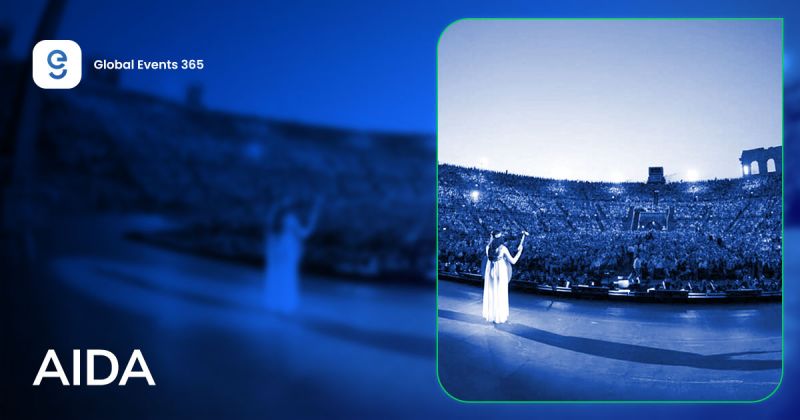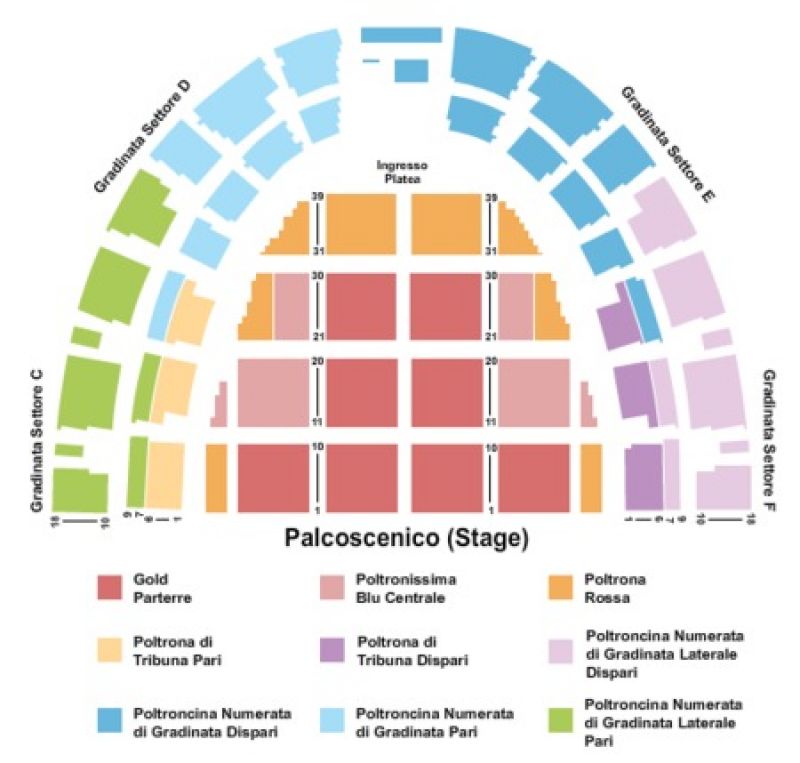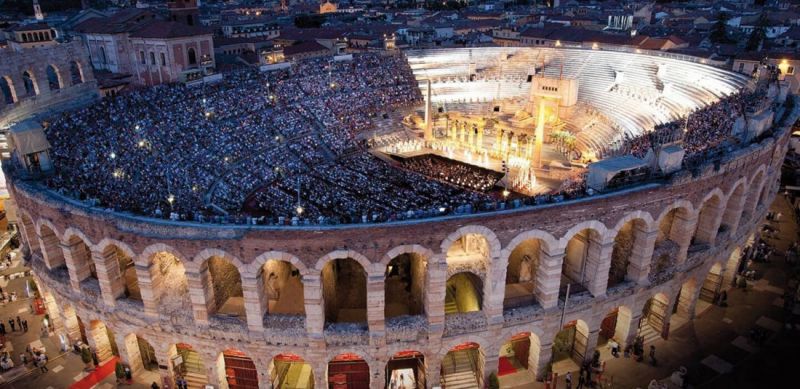"Aida" at the 100th Arena di Verona Opera Festival 2023 -August 18



Ticket categories
Category 1
From € 70.00
Relish the spectacle as a new production of Verdi's 'Aida' takes the stage at the Arena di Verona with superstar Anna Netrebko in the role of Aida.
Ancient Egypt is provided with a contemporaneous backdrop by the Roman‐era arena, as Verdi's immense score, both lyrical and dramatic, plays out to its tragic end. 'Aida' is an opera in four acts composed by Giuseppe Verdi, on a libretto by Antonio Ghislanzoni.
Act 1
Ramfis, High Priest of Egypt, tells Radamès that war with the Ethiopians seems inevitable. Radamès hopes that he will be chosen as the Egyptian commander, dreaming both of victory and of Aida, the Ethiopian slave, with whom he is secretly in love. Aida, who returns Radamès love, is the daughter of the Ethiopian King Amonasro, an identity hidden from her Egyptian captors.
Amneris, the daughter of Pharaoh, enters. She also loves Radamès, but fears that Aida may be her rival. Pharaoh enters, with the High Priest, and the whole court, to news that the Ethiopians are marching on Thebes. The King declares war and proclaims Radamès leader of the army.
Left alone, Aida is torn between her love for her father, her country, and Radamès.
Radamès is installed as commander‐in‐chief. The Egyptians pray for victory and protection for their warriors.
Act 2
Radamès' victory is celebrated, but Amneris doubts Radamès' love and suspects Aida is in love with him. When Aida enters the chamber, Amneris lies, telling her that Radamès has died in the battle. Shocked and grieving, Aida confesses her love for Radamès. Amneris is enraged and swears vengeance on Aida.
Radamès returns and the troops march into the city in triumph. Pharaoh declares that Radamès may have anything he wishes. The Ethiopian captives are led onstage in chains, King Amonasro among them. Amonasro proclaims to the Egyptians that the Ethiopian king has been slain in battle, and the captives plead with the Egyptian King for mercy, but Ramfis and the Egyptian priests call for the prisoners’ death. Claiming the King’s promised reward, Radamès pleads for mercy for the prisoners. The King grants Radamès' wish, declaring that Radamès will be the King's successor and will marry Amneris. Aida and Amonasro will remain hostage to ensure that the Ethiopians do not avenge their defeat.
Act 3
On the eve of Amneris and Radamès' wedding, Aida waits outside the Temple of Isis to meet Radamès. Amonasro appears and orders Aida to discover the location of the Egyptian army. Aida reluctantly agrees.
Amonasro hides behind a rock and listens to Aida and Radamès. Radamès swears that he will marry Aida and Aida convinces him to flee with her. Radamès suggests a safe route, revealing the location of his army. Amonasro comes out of hiding and reveals his identity. Radamès realizes he has unwittingly revealed a crucial military secret to the enemy. Amneris and Ramfis leave the temple and call for the imperial guards. Amonasro draws a dagger, but Radamès disarms him. Ordering Amonasro to flee with Aida, Radamès surrenders himself to the imperial guards, who arrest him as a traitor.
Act 4
Amneris calls for the guard to bring Radamés to her, and asks him to deny the accusations, but he refuses. Ramfis recites the charges, Radamès refuses to defend himself, and is condemned to death. Amneris protests that Radamès is innocent, and pleads for mercy, but he is sentenced to be buried alive.
Radamès has been sealed in a dark vault. He hears a sound and then sees Aida, who has hidden herself in the vault in order to die with Radamès. They accept their terrible fate and bid farewell to Earth and its sorrows. Above the vault, Amneris weeps and prays to the goddess Isis. The lovers die in each other’s arms as the priests, offstage, pray to the god Ftha.

About Arena Di Verona
| Country | Italy |
| Address | P.za Bra, 1, 37121 Verona VR, Italy |
